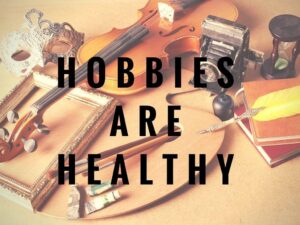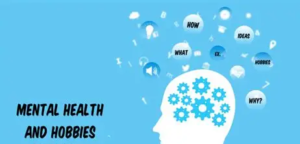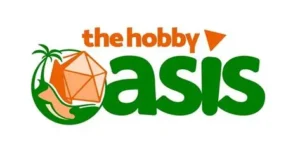Read time 5 minutes
Life dances to its rhythm, tossing us unexpected challenges when we least expect them.

In my case, the year 2016 marked a profound turning point. I was diagnosed with a rare neuromuscular condition known as Isaacs’ Syndrome.
And that was just the beginning—Lyme disease, Glaucoma, Membranous Glomerulonephritis, Irritable Bowel Syndrome (IBS), Diabetes, Frozen Shoulder, Eczema, and Blood Pressure issues followed suit like unwelcome guests.
When my physical health began to decline, an unexpected silver lining emerged, and I found my way back to the joy of hobbies. Rather than merely serving as distractions from pain, hobbies became powerful tools of self-discovery, healing, and connection.
This is a story about how diving into what I love gave me not just relief but meaning.
Room 208: The Place Where Laughter Echoed

Hospitals aren’t usually filled with laughter. They’re places where silence creeps in through white walls and rubber soles. But in Room 208, something magical bloomed. There, amidst frequent treatments and mounting discomfort, I revisited an old love, watching stand-up comedy.
Watching comedians like Russell Peters helped me reconnect with lighthearted moments. Over time, nurses, caregivers, and even the floor manager began stopping by. They were drawn by the laughter spilling from my room like sunshine through blinds. Humor didn’t just lift my spirits; it knitted bonds between strangers and made everyone feel less alone.
That room wasn’t just mine; it became a place, where illness faded temporarily and smiles prevailed. These small but powerful interactions reminded me that human connection, sparked by shared passions, is a form of medicine.
The Power of Planting and Play
Sometimes, healing happens in dirt and laughter.
One bright afternoon, I found myself digging two inches into the earth to plant a mango sapling. That moment simple yet profound symbolized hope, and growth. As I nurtured that tiny plant, I also nurtured parts of myself I thought were lost.
Then there was table tennis, a sport I once played with much warmth. My muscles didn’t remember at first, but my heart did. I picked up the paddle again and felt joy slowly trickle back. Muscle by muscle, memory by memory, I began reclaiming my independence and vitality.
Whether through sowing seeds or smacking ping pong balls, my hobbies reintroduced me to a version of myself that illness had tried to erase.
Hobbies Heal More Than Just the Mind

Here’s what hobbies offered me during some of my toughest days:
1) Physical Movement:
Table tennis and gardening reactivated muscles I hadn’t used in ages. They improved my reflexes, boosted endurance, and gave me independence.
2) Mental Engagement:
Writing became a tool to express myself and raise awareness about rare diseases. It softened mood swings and restored confidence.
3) Knowledge Building:
The deeper I researched for my articles, the more I discovered about myself—and about medical topics that once baffled me.
4) Family Bonding:
Discussing my hobbies, sharing jokes, and participating in playful banter built stronger connections with my loved ones.
Instead of wallowing in symptoms, I began to invest in happiness. These activities weren’t escapes; they were lifelines.
The Psychology Behind Hobbies

Engaging in hobbies during periods of illness isn’t merely about entertainment; it was therapeutic. Here’s why:
- Hobbies reduced stress and chronic pain by releasing dopamine and other happy hormones
- They offered cognitive stimulation, giving my brain something uplifting to focus on
- They promoted social interaction, helping me to counter loneliness and isolation
- Hobbies often led to progress, which fed into feelings of accomplishment and self-worth
Importantly, these hobbies encouraged mindful living.
Finding My Hobby Oasis

There were times when I struggled; mentally, emotionally, and physically. Here’s how I started with few hobby paths:
1) Started Small:
I didn’t have any grand vision. Even listening to music or coloring a picture counted.
2) Tried Something New:
Sometimes the best therapy lies in unknown territory. I never gardened or journaled but gave it a shot.
3) Made It Social:
I Joined groups and invited friends. The bond formed through shared passions became one of my greatest support systems.
4) Set Goals:
I had set goals which fueled motivation
5) Tracked My Joy:
I closely noticed which activities lightened my mood or eased my symptoms. I leaned into them.
Hobbies are deeply personal. What uplifts one person may bore another and that’s completely okay. The trick lies in exploration and openness.
How Interests Build Support Systems

Talking about hobbies makes conversation effortless. There’s a genuine spark when people speak from passion and it creates a ripple effect of joy and openness.
I found this especially true during my hospital days. Conversations that began with comedy clips turned into meaningful exchanges about memories. These moments weren’t fleeting and they built real friendships and support networks.
Joining a book club, painting circle, or online gaming community might sound simple. But in those spaces, we meet people who uplift us, understand out struggles, and cheer us on. That’s what makes hobbies magical. They connect us on levels deeper than surface talk.
Wrapping It All Together
When health fails, life can feel narrow and limiting.
Hobbies open doors to infinite worlds. They give our mind something to dance with when our body feels trapped. They spark creativity, build resilience, and restore self-worth.
Here’s what I’ve learned through my journey:
- Hobbies aren’t frivolous—they’re fundamental
- They restore balance by engaging the mind and body meaningfully
- They offer escape without detachment. You stay grounded while discovering joy
- They turn quiet moments into colorful ones, transforming pain into passion
So, if you’re going through something difficult, don’t underestimate the power of planting a tree, writing a story, watching a comedy show, or picking up a dusty racket.
Hobbies can be a valuable component of managing chronic symptoms supporting a better quality of life. Inside those small actions lie transformative possibilities.
Disclaimer
These reflections are based on personal experience and do not constitute medical advice. Always consult your healthcare provider when exploring therapeutic options.


